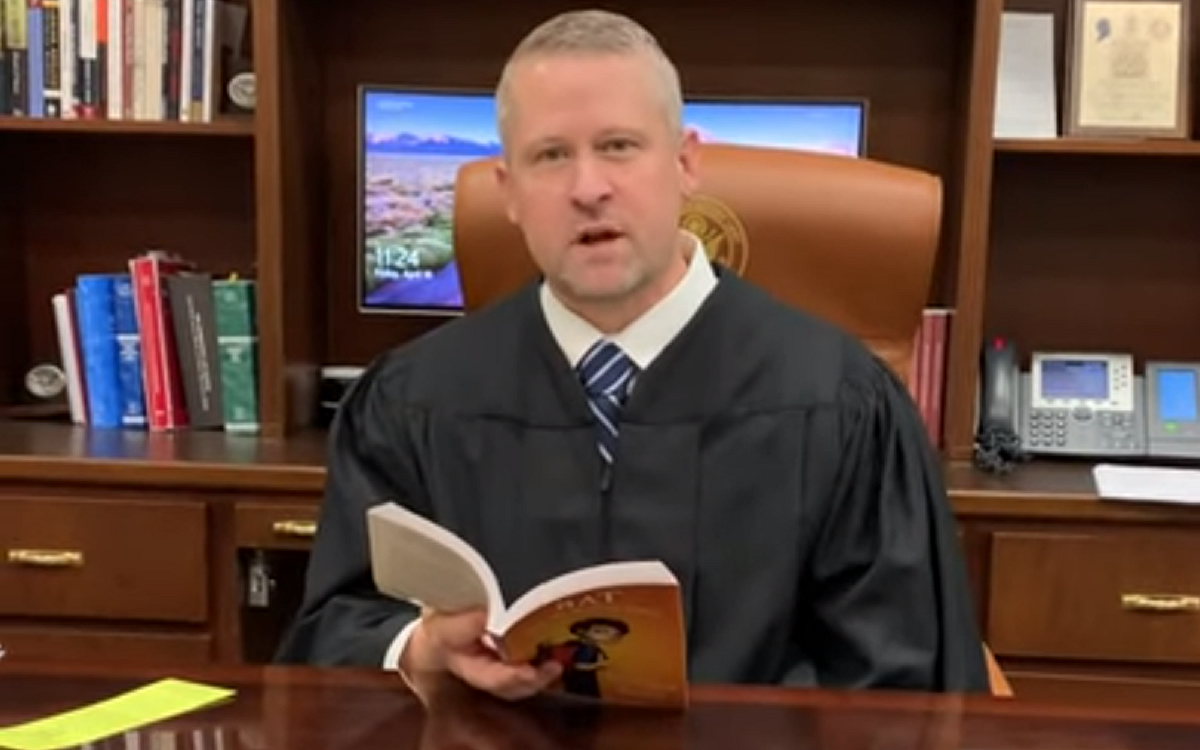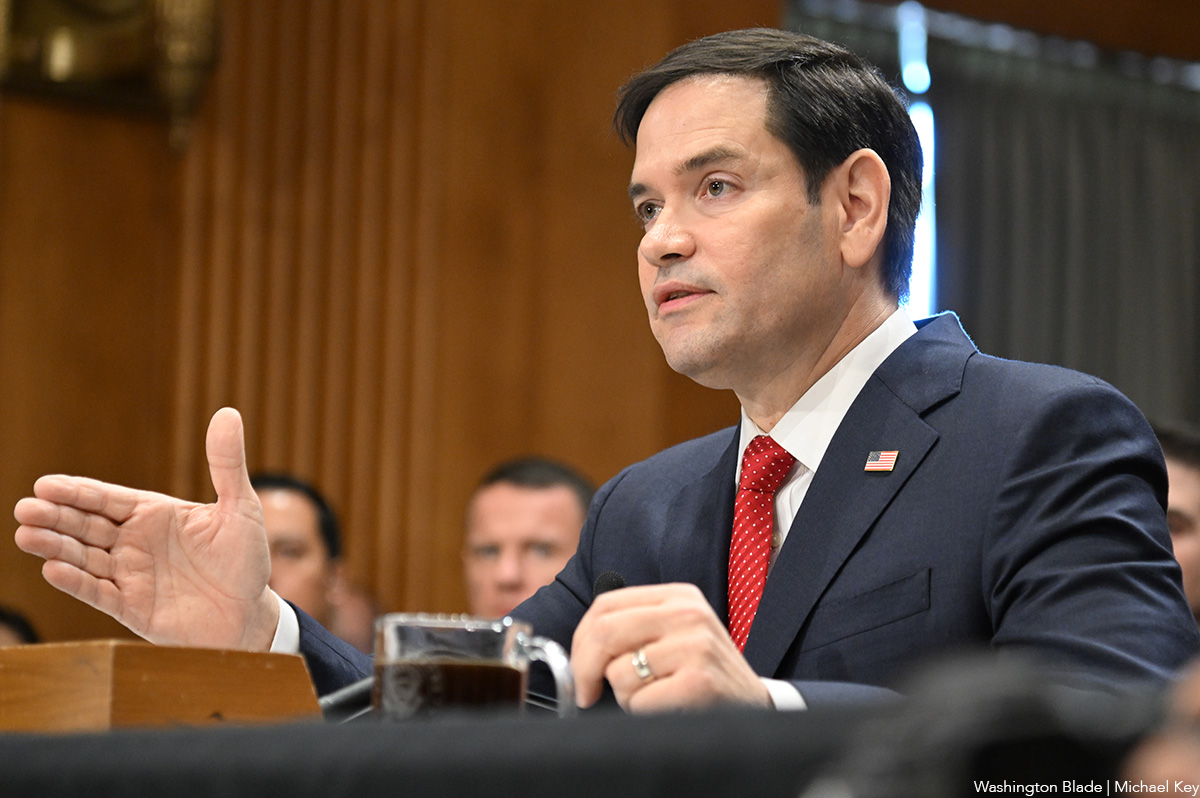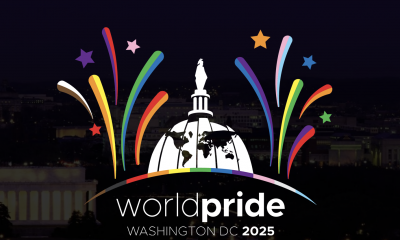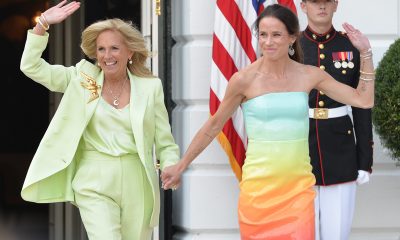National
Santa Fe mayor says ‘time has come’ for N.M. marriage equality
Coss expects court action, but ultimately a decision to allow same-sex couples to marry


Santa Fe Mayor David Coss is arguing same-sex marriage is already legal in New Mexico (Photo public domain)
Santa Fe Mayor David Coss has a simple reply when asked why he decided to declare same-sex marriage is already legal in New Mexico: “I think the time has come.”
Speaking with the Washington Blade on Tuesday, Coss said he and other city officials issued an opinion and a proposed resolution saying marriage equality is legal in New Mexico because the state legislature adjourned on Saturday without addressing the issue.
“We think it’s legal in New Mexico,” Coss said. “If you look at the constitution, and you look at the statutes, there’s no prohibition. I think just as a matter of equal rights under the law, we ought to move.”
Along with City Council member Patti Bushee, Coss unveiled the proposed resolution on Tuesday saying same-sex marriage is legal in New Mexico and county clerks should begin granting marriage licenses to gay couples. On the same day, City Attorney Geno Zamora issued an opinion affirming those views — observing no law in the state explicitly bans same-sex marriage and gay couples have equal protections under the state constitution.
Coss, who has a gay daughter, said he expects same-sex couples will soon be able to marry in New Mexico.
“The resolution that we have introduced to [the] city council and the legal opinion that our attorney’s office did also provides what’s the legal steps if the clerks won’t issue the licenses, but we’ve been waiting for the legislature to address this for 25 years,” Coss said.
This action from city officials comes more than two years after an opinion from state Attorney General Gary King stating same-sex marriage is legal in New Mexico. However, his opinion does not have the force of law.
Coss said he expects the resolution and opinion will mostly go before district court, then to the New Mexico Supreme Court for a final resolution.
“If the Supreme Court agrees with us, then that’ll take us to New Mexico being the 10th state to recognize same-sex marriage,” Coss said.
It wouldn’t be the first time county clerks in New Mexico began issuing marriage licenses to same-sex couples.
On Feb. 20, 2004, Sandoval County Clerk Victoria Dunlap began issuing marriage licenses to gay couples — awarding more than 60 licenses to them — until the state attorney general issued an opinion saying the marriages were invalid on the same day.
Asked if there’s any danger gay couples who marry in New Mexico could suffer harm if they discover their unions are later invalid, Coss acknowledged a danger but said harm is being done to couples “who don’t have their rights builds every day.”
“We just think we’re in a good position,” Coss said. “I think the legal opinion is sound. I think the attorney general’s opinion saying that we should recognize same-sex marriages from other states in New Mexico just begs the question: So why not for New Mexicans?”
Coss said while he plans to introduce the resolution to the City Council on March 27, action won’t happen until April 24. Therefore, he doesn’t think it’ll have an impact on U.S. Supreme Court oral arguments next week on California’s Proposition 8 and the Defense of Marriage Act.
Before making the announcement, Coss said he spoke with numerous LGBT rights group in New Mexico about the decision, including Progress New New Mexico, the main group coordinating the initiative, as well as Equality New Mexico and the Human Rights Alliance in Santa Fe. But Coss said he hasn’t spoken to national groups, including the Human Rights Campaign, about the decision.
According to Coss, no group or person has said to him personally that issuing the decision at this time is a bad idea, however, he said he’s heard that sentiment expressed elsewhere.
Further, Coss was unabashed about the what the move would mean for New Mexico if it were to join nine states and D.C. in marriage equality.
“I would be very proud for New Mexico to be the 10th state,” Coss said. “I’m very proud of the city of Santa Fe. We’ve been a leader in labor rights, immigrants and rights for gay and lesbian people. So, I think we’re making the right statement and the right opinion, and I feel pretty confident that before too much longer, same-sex couples in New Mexico will have equal rights with the rest of New Mexicans.”
U.S. Federal Courts
Federal judge scraps trans-inclusive workplace discrimination protections
Ruling appears to contradict US Supreme Court precedent

Judge Matthew Kacsmaryk of the U.S. District Court for the Northern District of Texas has struck down guidelines by the U.S. Equal Employment Opportunity Commission designed to protect against workplace harassment based on gender identity and sexual orientation.
The EEOC in April 2024 updated its guidelines to comply with the U.S. Supreme Court’s ruling in Bostock v. Clayton County (2020), which determined that discrimination against transgender people constituted sex-based discrimination as proscribed under Title VII of the Civil Rights Act of 1964.
To ensure compliance with the law, the agency recommended that employers honor their employees’ preferred pronouns while granting them access to bathrooms and allowing them to wear dress code-compliant clothing that aligns with their gender identities.
While the the guidelines are not legally binding, Kacsmaryk ruled that their issuance created “mandatory standards” exceeding the EEOC’s statutory authority that were “inconsistent with the text, history, and tradition of Title VII and recent Supreme Court precedent.”
“Title VII does not require employers or courts to blind themselves to the biological differences between men and women,” he wrote in the opinion.
The case, which was brought by the conservative think tank behind Project 2025, the Heritage Foundation, presents the greatest setback for LGBTQ inclusive workplace protections since President Donald Trump’s issuance of an executive order on the first day of his second term directing U.S. federal agencies to recognize only two genders as determined by birth sex.
Last month, top Democrats from both chambers of Congress reintroduced the Equality Act, which would codify LGBTQ-inclusive protections against discrimination into federal law, covering employment as well as areas like housing and jury service.
The White House
Trump travels to Middle East countries with death penalty for homosexuality
President traveled to Saudi Arabia, Qatar, and United Arab Emirates

Homosexuality remains punishable by death in two of the three Middle East countries that President Donald Trump visited last week.
Saudi Arabia and Qatar are among the handful of countries in which anyone found guilty of engaging in consensual same-sex sexual relations could face the death penalty.
Trump was in Saudi Arabia from May 13-14. He traveled to Qatar on May 14.
“The law prohibited consensual same-sex sexual conduct between men but did not explicitly prohibit same-sex sexual relations between women,” notes the State Department’s 2023 human rights report, referring specifically to Qatar’s criminalization law. “The law was not systematically enforced. A man convicted of having consensual same-sex sexual relations could receive a sentence of seven years in prison. Under sharia, homosexuality was punishable by death; there were no reports of executions for this reason.”
Trump on May 15 arrived in Abu Dhabi, the capital of the United Arab Emirates.
The State Department’s 2023 human rights report notes the “penalty for individuals who engaged in ‘consensual sodomy with a man'” in the country “was a minimum prison sentence of six months if the individual’s partner or guardian filed a complaint.”
“There were no known reports of arrests or prosecutions for consensual same-sex sexual conduct. LGBTQI+ identity, real or perceived, could be deemed an act against ‘decency or public morality,’ but there were no reports during the year of persons prosecuted under these provisions,” reads the report.
The report notes Emirati law also criminalizes “men who dressed as women or entered a place designated for women while ‘disguised’ as a woman.” Anyone found guilty could face up to a year in prison and a fine of up to 10,000 dirhams ($2,722.60.)

Trump returned to the U.S. on May 16.
The White House notes Trump during the trip secured more than $2 trillion “in investment agreements with Middle Eastern nations ($200 billion with the United Arab Emirates, $600 billion with Saudi Arabia, and $1.2 trillion with Qatar) for a more safe and prosperous future.”
Former President Joe Biden traveled to Saudi Arabia in 2022.
Saudi Arabia is scheduled to host the 2034 World Cup. The 2022 World Cup took place in Qatar.
State Department
Rubio mum on Hungary’s Pride ban
Lawmakers on April 30 urged secretary of state to condemn anti-LGBTQ bill, constitutional amendment

More than 20 members of Congress have urged Secretary of State Marco Rubio to publicly condemn a Hungarian law that bans Pride events.
California Congressman Mark Takano, a Democrat who co-chairs the Congressional Equality Caucus, and U.S. Rep. Bill Keating (D-Mass.), who is the ranking member on the House Foreign Affairs Committee’s Europe Subcommittee, spearheaded the letter that lawmakers sent to Rubio on April 30.
Hungarian lawmakers in March passed a bill that bans Pride events and allow authorities to use facial recognition technology to identify those who participate in them. MPs last month amended the Hungarian constitution to ban public LGBTQ events.
“As a NATO ally which hosts U.S. service members, we expect the Hungarian government to abide by certain values which underpin the historic U.S.-Hungary bilateral relationship,” reads the letter. “Unfortunately, this new legislation and constitutional amendment disproportionately and arbitrarily target sexual and gender minorities.”
Prime Minister Viktor Orbán’s government over the last decade has moved to curtail LGBTQ and intersex rights in Hungary.
A law that bans legal recognition of transgender and intersex people took effect in 2020. Hungarian MPs that year also effectively banned same-sex couples from adopting children and defined marriage in the constitution as between a man and a woman.
An anti-LGBTQ propaganda law took effect in 2021. The European Commission sued Hungary, which is a member of the European Union, over it.
MPs in 2023 approved the “snitch on your gay neighbor” bill that would have allowed Hungarians to anonymously report same-sex couples who are raising children. The Budapest Metropolitan Government Office in 2023 fined Lira Konyv, the country’s second-largest bookstore chain, 12 million forints ($33,733.67), for selling copies of British author Alice Oseman’s “Heartstopper.”
Former U.S. Ambassador to Hungary David Pressman, who is gay, participated in the Budapest Pride march in 2024 and 2023. Pressman was also a vocal critic of Hungary’s anti-LGBTQ crackdown.
“Along with years of democratic backsliding in Hungary, it flies in the face of those values and the passage of this legislation deserves quick and decisive criticism and action in response by the Department of State,” reads the letter, referring to the Pride ban and constitutional amendment against public LGBTQ events. “Therefore, we strongly urge you to publicly condemn this legislation and constitutional change which targets the LGBTQ community and undermines the rights of Hungarians to freedom of expression and peaceful assembly.”
U.S. Reps. Pramila Jayapal (D-Wash.), Sarah McBride (D-Del.), Jim Costa (D-Calif.), James McGovern (D-Mass.), Gerry Connolly (D-Va.), Summer Lee (D-Pa.), Joaquin Castro (D-Texas), Julie Johnson (D-Texas), Ami Bera (D-Calif.), Mark Pocan (D-Wis.), Lloyd Doggett (D-Texas), Becca Balint (D-Vt.), Gabe Amo (D-R.I.), Ted Lieu (D-Calif.), Robert Garcia (D-Calif.), Dina Titus (D-Nev.), Raja Krishnamoorthi (D-Ill.), Jan Schakowsky (D-Ill.) and Mike Quigley (D-Ill.) and Del. Eleanor Holmes Norton (D-D.C.) signed the letter alongside Takano and Keating.
A State Department spokesperson on Wednesday declined to comment.




















